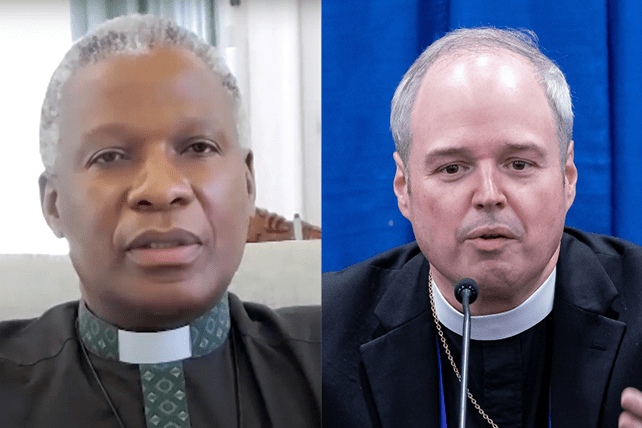A State Department spokesperson did not to answer specific questions regarding the vetting process for Afrikaner refugees, saying instead, “We are unable to comment on individual cases, but eligible individuals are moving through the process of refugee resettlement.”
A spokesperson for the U.S. Department of Health and Human Services, which helps orchestrate resettlement, said the agency will “use current and available funding to resettle Afrikaner refugees” and has been coordinating their placement with “current grant recipients that receive Preferred Communities Program funding” — namely, the resettlement agencies that partner with the government.
The U.S. Conference of Catholic Bishops also announced last month it would no longer renew cooperative agreements with the federal government regarding refugee resettlement, citing the government’s suspension of the program which has resulted in widespread layoffs across the various resettlement agencies.
The remaining five faith-based resettlement groups partnering with the government have indicated they intend to continue to resettle refugees allowed into the country, with at least two — Church World Service and World Relief — confirming to RNS this week that they will resettle small numbers of Afrikaners.
However, CWS, World Relief and other faith-based resettlement groups remain vocally critical of the government’s halting of the refugee program, with four filing two separate lawsuits against the government earlier this year.
On Thursday, Tim Young, a spokesperson for Global Refuge, formerly known as Lutheran Immigration and Refugee Service, said in an X post that among the plaintiffs in its ongoing lawsuit is a Christian refugee who fled to South Africa to escape violence in her home country, Congo. She was approved to travel to the U.S., but, unlike white Afrikaners, is now unable to enter the country.
“Her family is already in the U.S. eagerly awaiting her,” Young wrote. “She was approved to travel, but the refugee program was suspended and she can’t be with her grieving mother as they mourn the loss of her brother.”
This article originally appeared here.

